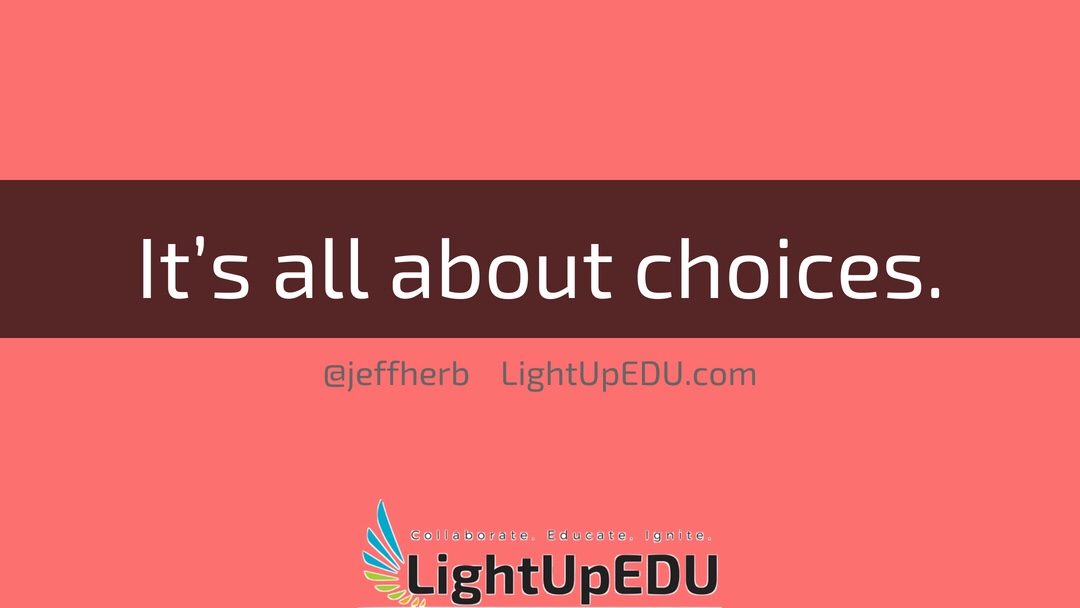Over the course of the last couple weeks, Nikki and I have referenced the radical change in PD we are trying this year: Passion Projects (more detail about this coming in a future post). I was browsing Twitter today and came across this tweet from Daniel Pink:
3 principles for fostering intrinsic motivation in students:
— Autonomy is more effective than control.
— People who set their own goals outperform those who have goals foisted on them.
— Knowing why you're doing something helps you do it better.https://t.co/9AXRb8Rc5k— Daniel Pink (@DanielPink) August 27, 2018
While all three points he references speak to major tenets of our passion project PD, the second one is what led us to this journey.
We did a survey this summer that asked, given six categories, which area of focus our staff would like to dive into this year. The results said it all – pretty much an even split among all of them. That really made us stop and think; we could pick one or two and at least appease some of the group OR we could do something completely different and allow everyone’s interests to drive their goals. We went for the latter.
Linked in Pink’s tweet was an article, which spoke of the ability to motivate without rewards (something Nikki I’m sure will hit sometime in her writing). I loved this section as it is so true about my learning and I know it is true of our students and staff, too.
It is all about choices. For many students, simply helping them to see that they have options in how they spend their time, how they participate in learning and extracurricular activities, and how they engage with their school and community can empower them, increasing their intrinsic motivation.
Our staff was excited, motivated, and engaged. They were talking about their projects with others. They were asking questions and challenging each other. And, it was all of their own design. Hearing some of their ideas it is clear that there was no way that we were going to develop PD to truly harness the interests and talent of our staff by creating goals for them.
It’s all about choices. The million dollar question is “do we actually give them?”



Get new posts in your email!
Join our mailing list to receive the latest posts from LightUpEDU! We will never spam you, promise!
Please check your email to confirm your subscription!